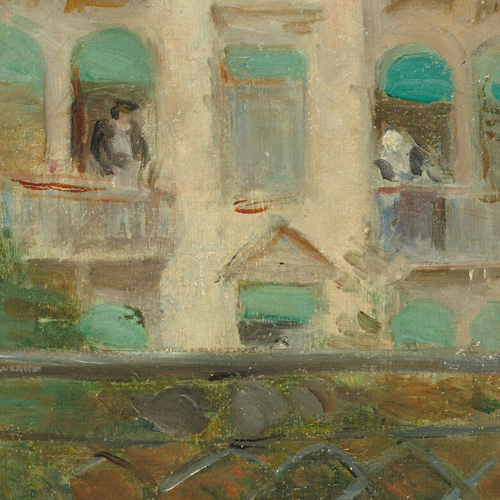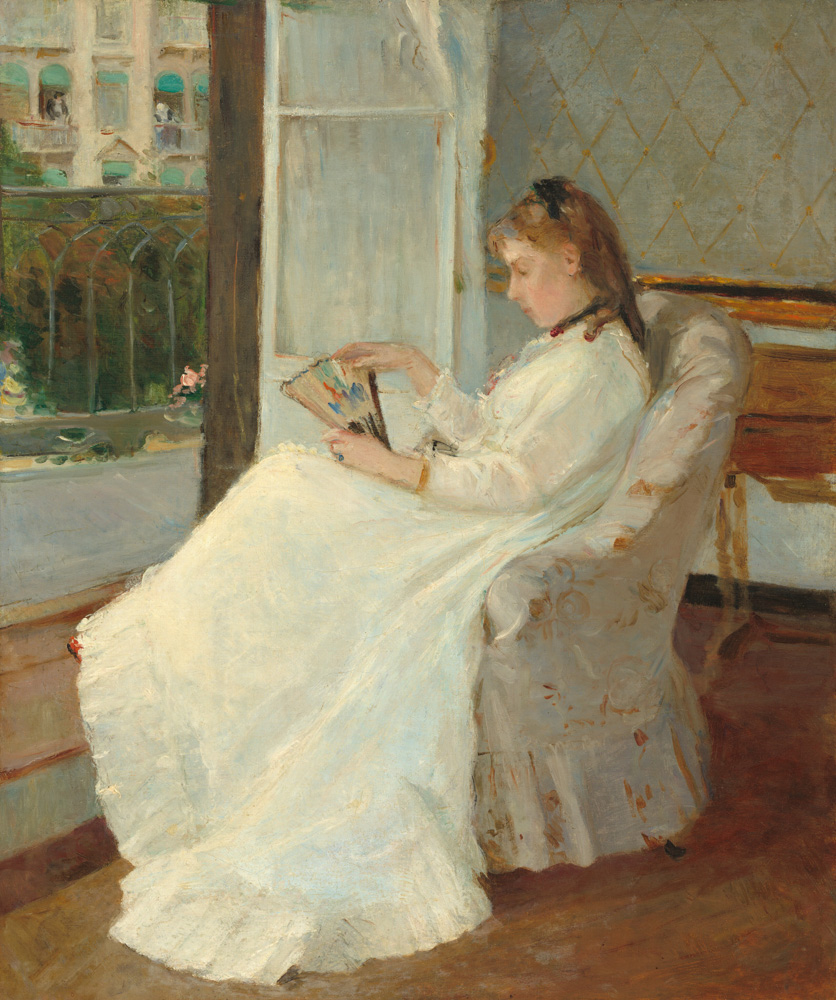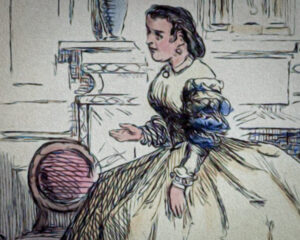
On Demand

Mrs. Gina Loehr
A few years before on-demand streaming services trumped TV Guide, in the era before computers, phones, or other “devices” became society’s primary purveyor of entertainment, my oldest daughter was in second grade. She came home from school one afternoon and announced, “My class found out we don’t have a TV.”
At first, I wondered whether she had intentionally been trying to keep that a secret. Then, I wondered how the kids had treated her in the wake of this stunning revelation.
She shared the details willingly. It didn’t seem too traumatic. I don’t recall why or how the news leaked out. But I do recall the part of the tale where she described (with the sort of sophisticated distaste that I shouldn’t approve of but — mea culpa — do) how ridiculously they had all reacted.
The general mood of her bewildered peers was epitomized in the question posed by one of her chums: “But what do you do?”
Apparently, she had an answer at the ready. “We read. We play games. We take care of the animals. We make crafts. We play music. We visit our grandparents. Or we just tell stories and talk. You should try it.”
“We read. We play games. We take care of the animals. We make crafts. We play music. We visit our grandparents. Or we just tell stories and talk. You should try it.”
Yes. Those were the days. When not having a TV was all you had to do to not have TV. Now, it’s a much more subtle art. We have somehow created a life requiring minute-by-minute self-control, instead of requiring one simple decision not to buy a piece of equipment. Now, to avoid the onslaught of images and messages that are flung our way, we have to turn things off, change settings, scroll down, scroll up, press little hard-to-find x’s, or decide that we’re simply not going to give in to the desire to click on that right now.
But I digress. What I wanted to discuss was air conditioning.
We don’t have air conditioning either, folks. This is not a small statement. Wisconsin isn’t the tropics or the desert, but I’d put us as a frontrunner for Most Likely to be Miserably Muggy.
 I confess, there may be a day (or five) in August when I grab the telephone, look up the number for the local A.C. company, and dial in succession each of its seven tantalizing digits. I walk in slow semi-circles dictated by the oscillating fan — dripping, dismal, desperate — while staring at the green button and contemplating how easy it would be to give up, press it, and schedule the installation of on-demand comfort. But I have yet to go through with it. Here’s why:
I confess, there may be a day (or five) in August when I grab the telephone, look up the number for the local A.C. company, and dial in succession each of its seven tantalizing digits. I walk in slow semi-circles dictated by the oscillating fan — dripping, dismal, desperate — while staring at the green button and contemplating how easy it would be to give up, press it, and schedule the installation of on-demand comfort. But I have yet to go through with it. Here’s why:
I remember a time when air conditioning was a luxury — at least here in the Midwest. I recall the thrill of entering the homes of those elite beings who had “central air,” and marveling at the weird metal orbs that hovered in their backyards, buzzing and dripping as they conditioned the domestic climate and culture.
Before my parents moved us to our new house in the mid-nineties, we lived without central air. For a while, we lived without “air” at all. The memory is still fresh in my mind of the day my dad astonished us by showing up with a massive wall unit air conditioner — a hand-me-down from the commercial laundromat that my grandmother owned.
The gargantuan, brown, steel box must have weighed two hundred pounds. Dad cut a hole in the wall and installed the thing, which — when the stiff, plastic-coated supercord was jammed hard enough into the socket below — roared like a mad lion and dripped like a hungry dog (right onto the family room carpet).
It was loud. It was soggy. But man, was it cool.
We would camp out in front of that magical box at the end of the day and watch it flap and shake and blow. Conversation wasn’t an option while it thundered. The air did not waft forth gently as from a floor vent; it was more like a sixty-mile-an-hour winter windstorm doing battle with your sweltering body. But we were comfortable and satisfied. No TV required.
We understood that conditioned air was something special, extraordinary even. We appreciated the raucous mechanical comfort, like a gift to be relished for a few minutes at the end of the day or on special occasions. And since we didn’t spend all our time in front of the laundromat lion, we were also unafraid of heat.
We played outside, even when it was hot. We ate outside, even when it was hot. We more or less lived outside, even, and especially, when it was hot. We did not experience the jarring misery of stepping out of normative central air into . . . reality. Instead, we enjoyed the occasional, intentional pleasure of stepping briefly into a cool room after a long, hot summer day in the real world.
We played outside, even when it was hot. We ate outside, even when it was hot. We more or less lived outside, even, and especially, when it was hot.
Years later, when my parents moved us into a house with consistent climate control, I remember feeling that there was something artificial about it all. That the very air I was breathing was fake. That I was living in a bubble that kept me from a full encounter with the world around me. True, one could make a similar case about a gas furnace and forced air. But fires have been around for quite some time; they are part of nature and human life therein. In any case, warming the air never bothered me like “conditioning” it did.
 So when I moved out on my own, I made a resolution to live without air conditioning as much as I could. Roommates sometimes had different opinions, and I don’t claim perfect adherence, but when I eventually got married and moved into my husband’s farmhouse, there was no air conditioning on site anyway. And we were both on board.
So when I moved out on my own, I made a resolution to live without air conditioning as much as I could. Roommates sometimes had different opinions, and I don’t claim perfect adherence, but when I eventually got married and moved into my husband’s farmhouse, there was no air conditioning on site anyway. And we were both on board.
We want our kids to know that discomfort isn’t something to fear or to avoid at all costs. We want them to know that they can handle tough situations. This philosophy is also behind our decision not to build an attached garage onto our house or to “update” our perfectly operable appliances or, frankly, to move from this century-old home with all of its built-in trials.
How did so many generations of people live without television and air conditioning and attached garages? Why do so many of us think we can’t? Like those who have gone before us, we will all have to meet many sorrows and struggles face to face, no matter how advanced our comfort measures or streaming services may become. Those who train themselves to have a little voluntary grit will, I suspect, meet these sorrows in a better state of mind.
When we don’t expect comfort, pleasure, and diversion at every turn, we will be stronger. When we don’t demand instant entertainment as a way to escape the duller moments of life, we will be more creative and, I venture, happier too.
Giving up these things entirely may be unrealistic for many. But the principles can still be practiced. Here are a few ideas: Have a picnic on the hottest day of the summer. Park your car outside when it’s raining. Unsubscribe from your movie service for a week or two (or forever). And then return to the kitchen, the garage, and the screen with a new sense of appreciation and gratitude. You’ll trade in the slavery of living on-demand for the freedom of taking command. Trust me. It’s worth it.




















